2022 Summit Speakers
The top 28 research leaders from around the world will present during the 2022 Summit. Below you will find the list of speakers and their biography. View the Agenda page for the list of topics that will be presented by the conference speakers.
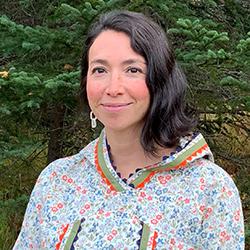
Elizabeth Aarons, MS, RN
Elizabeth Aarons, MS, RN is Inupiaq from the Native Village of Unalakleet. She comes from a lineage of healers. Prior to the time when pregnancy, labor and birth became medicalized in Western healthcare, her Great-Great-Grandmother on her mother’s side was one of the local midwives in her home village. On her father’s side, her Great Grandfather was a doctor trained in Western Medicine. The duality of their practices has given her a perspective and respect for where knowledge originally came from –Indigenous healers.
Before attending nursing school, Elizabeth earned a bachelor’s degree in Anthropology from University of Colorado, Boulder. She was an intern in the Epidemiology Dept. at Alaska Native Tribal Health Consortium. She created fact sheets for data dissemination related to Alaska Native health disparities and outcomes, using the Behavioral Risk Factor Surveillance System. She received a MS in Public Health Nursing from the University of California at San Francisco (UCSF). At UCSF, she worked as a Research Assistant at Larkin Street Youth Services and helped to develop an evidenced-based evaluation tool and collected data among HIV- positive homeless youth for an intervention that addressed substance use and mental illness.
As a nurse at Alaska Native Medical Center (ANMC), Elizabeth is in a position to improve health outcomes among Alaska Native People. At ANMC, she has worked in the Critical Care Unit, COVID Testing and Resulting (contracted through the CDC Foundation) and is currently working in the Oncology/Infusion Center.
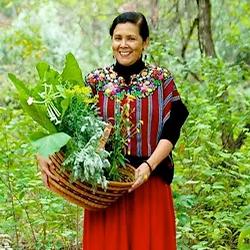
Marika Alvarado
Indigenous Heritage: Lipan Mescalero Apache Medicine Woman
Marika Alvarado is a Lipan Mescalero Apache Medicine Woman based in Central Texas. She is the founder of “Of the Earth Institute of Indigenous Cultures and Teachings”, and is a direct descendant of generations of Medicine Women: traditional Native healers of spirit and body, midwives, and plant medicine practitioners.
Marika's mother, grandmother, and aunt handed the medicine down to her. As a child, she was taught the traditional way, as her family tended those who came to them in need. She believes in teaching all people who have the dedication and spiritual will to use these teachings as Mother Earth and the generations before her intended.
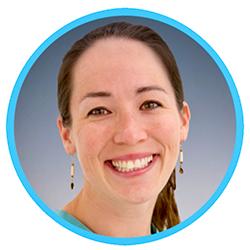
Elizabeth Arteaga, DNP
Dr. Elizabeth Arteaga’s family is Yupik from Hooper Bay, Alaska, in the Yukon-Kuskokwim Delta region. She earned a Doctorate of Nursing Practice (DNP) degree with a focus on executive leadership from Chatham University, where she also obtained a Master's of Nursing Science degree. She graduated from the Alaska Native Leadership Excellence through Determination (LEAD) program at the Alaska Pacific University and has been a Registered Nurse since 2008.
Dr. Arteaga has served as the Director of Covid-19 testing and resulting operations for the CDC Foundation for Tribal Nations in the State of Alaska since spring 2020. This role required coordinating with stakeholders to create testing and resulting operations to mitigate the spread of Covid-19 and involved partnerships with South Central Foundation (SCF), Alaska Native Tribal Health Consortium (ANTHC), CDC Foundation (CDCF), Indian Health Services (IHS), State of Alaska and independent Tribal corporations via CDC guidelines. Additionally, she partnered with Tribes and Tribal health organizations to help achieve their goals for the prevention of disease based on their self-determination. She also has been the liaison to maintaining responsibilities under the Federal-Tribal trust, government-to-government relationships, and philanthropy organizations that funded diverse programs to improve the health of Alaska Natives and American Indians living in Alaska.
Dr. Arteaga received the Presidential Service award of the Alaska Native Tribal Health Consortium for service to her people, Alaska Natives and American Indians living in Alaska, and has been awarded the Space-X award for creative ways to mitigate the COVID-19 pandemic. Her efforts have been showcased at the University of Chatham in 2020, presented in a nursing textbook to be released in 2023 for Covid-19 response efforts, and her efforts have been shared with governments and agencies around the United States to implement ways to mitigate the Covid-19 pandemic since 2020.
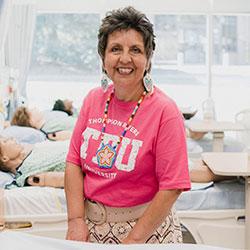
Lisa Bourque Bearskin, RN, PhD, FAAN, FCAN
Nation: Beaver Lake Cree Nation
University of Victoria, British Columbia, Canada
Dr. Bourque Bearskin, RN, PhD, from Beaver Lake Cree Nation, Treaty 6 Territory, is an Associate Professor at University of Victoria, located on the unceded lands of the lək̓ʷəŋən peoples on whose traditional territory the University of Victoria stands, and the Songhees, Esquimalt and W̱SÁNEĆ peoples whose historical relationships with the land continue to this day. As the inaugural CIHR Chair holder in Indigenous Health Research for Nursing in British Columbia her research contributes to supporting community knowledge as a generative process in advancing Indigenous health. Recognized for her relational, rights and strength-based research approach. A leader in reconciling parallel pathways of traditional Indigenous health care in the context of community wellness. A former president of the Canadian Indigenous Nursing Association (CINA), she led organizational changes that focused on collaborative partnerships and mentorship of Indigenous nurses implementing cultural safety and security as key educational outcomes for improving nursing practice. A sur-thriver of the residential school and sixties scoop era, maintains a solid connection to her community and culture. She became a Licensed Practical Nursing, went on to receive her Baccalaureate, Master of Science, and Doctor of Philosophy in Nursing from the University of Alberta. Nominated into the Canadian Academy of Nurses and the American Academy of Nursing for her leadership in advancing Indigenous health nursing.
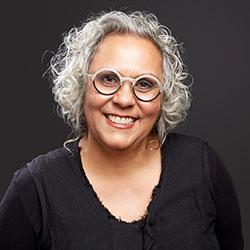
Odette Best, RN, PhD, CF, FACN, FAAN
Indigenous Heritage: Gorreng Gorreng (Wakgun Clan) and a Boonthamurra woman
University of Southern Queensland, Australia
Dr Odette Best through bloodline is a Gorreng Gorreng (Wakgun Clan) and a Boonthamurra woman and through adoption she is a Koomumberri, Yugambeh woman. Odette is currently Director, First Nations Research Alliance at the University of Southern Queensland, Ipswich Campus. Odette has been a Registered Nurse for 30 years and trained at Princess Alexandra Hospital, Brisbane, Australia. She further holds a Bachelor of Health Sciences, (University of Sydney), Master of Philosophy (Griffith University) and a PhD, (University of Southern Queensland). Odette has worked within Indigenous health for 30 years across settings including the Brisbane Aboriginal and Islander Community Health Service and Women’s Prisons as a sexual health nurse. Odette moved into tertiary sector in 2000 at the University of Southern Queensland and has led USQ to now having four PhD prepared First Nations nurse academics and graduating the highest number of First Nation students of any University in Australia. Odette is a current Australian Research Council (ARC) recipient undertaking research on the Historiography of Aboriginal Queensland women as nurses and midwives 1890-1950. She is a Churchill Fellow (the first Aboriginal Australian nurse), a Fellow of the American Academy of Nursing (the only Aboriginal Australian Nurse) and a Fellow of the Australian College of Nursing.
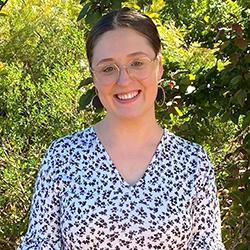
Makayla-May Brinkley, BPsych (Hons)
Aboriginal Heritage: Wiradjuri
Australian National University, Australia
Makayla-May Brinkley, BPsych (Hons) is Aboriginal (Wiradjuri) from Australia and is the Mayi Kuwayu Research Associate and PhD Scholar. Makayla-May is a Mayi Kuwayu Research Associate undertaking her PhD to design Knowledge Translation tools for Mayi Kuwayu across Aboriginal and Torres Strait Islander communities, policy and research. This includes undertaking case studies of how communities define their knowledge needs, enacting their community development agenda, monitoring progress over time and describing how knowledge is delivered to the different knowledge users. Makayla is a member of the Maiam nayri Wingara Indigenous Data Sovereignty Collective in Australia.
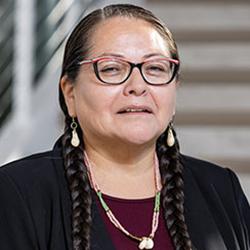
Teresa Brockie, RN, PhD, FAAN
Johns Hopkins University
Teresa Brockie, RN, PhD, FAAN, focuses on research that achieves health equity through community-based prevention and intervention of suicide, trauma, and adverse childhood experiences among vulnerable populations. A member of the White Clay (A'aninin) Nation from Fort Belknap, Montana, Dr. Brockie earned her PhD at the Johns Hopkins School of Nursing and completed a postdoctoral fellowship with the National Institutes of Health Clinical Center. In 2011, she led an all Native American team to collect data to study suicidal behavior among reservation-based Native American youth.
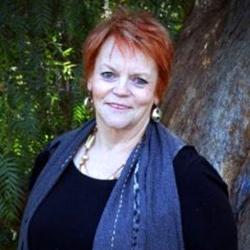
Jan Chapman, BPubPol
Aboriginal Heritage: Taungurung
Australian National University, Australia
Jan Chapman, BPubPol is Aboriginal (Taungurung) from Australia. She graduated from the University of Tasmania with a degree in Public Policy and Social Ecology. Jan is the Mayi Kuwayu Study Manager in the Aboriginal and Torres Strait Islander Health Program at the Australian National University. She has extensive Aboriginal and Torres Strait Islander policy experience across Indigenous Chronic Disease and for the last ten years she has managed all Mayi Kuwayu data development and data collection, including through the extensive community networks. Together with Nadine, Jan is currently assisting one community to embed their own data systems and processes aligned with their community development agenda.
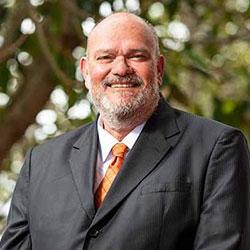
Tony Dreise, PhD
Indigenous Heritage: Guumilaroi and Euahlayi First Nations of north-west New South Wales and south-west Queensland
University of Southern Queensland, Australia
Professor Tony Dreise is the inaugural Pro Vice-Chancellor (First Nations Education and Research) at the University of Southern Queensland. He is a proud member of the Guumilaroi and Euahlayi First Nations of north-west New South Wales and south-west Queensland and is nationally and internationally recognised as a First Nations leader in policy, evaluation and research in the field of Indigenous public policy and education. Tony has had a long policy and research career in Australia, having worked as a Principal Indigenous Research Fellow at the Australian Council for Educational Research and the inaugural Professor of Indigenous Policy at the Australian National University (ANU). Tony's qualifications include a Bachelor of Teaching from Griffith University, a Masters of Public Administration from the Australia and New Zealand School of Government (ANZSOG), and a PhD from ANU. Tony is the Chair of the Indigenous Literacy Foundation, and a Member of the ANZSOG Research Committee.
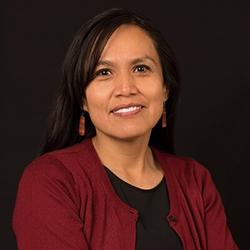
Regina S. Eddie, PhD, RN
Indigenous Heritage: Diné (Navajo) Nation of Arizona
Northern Arizona University
Regina S. Eddie, PhD, RN, is an Assistant Professor in the School of Nursing at Northern Arizona University. She is an enrolled tribal member of the Diné (Navajo) Nation of Arizona. She received her PhD from the University of New Mexico, College of Nursing with an emphasis in Health Policy. She is a Robert Wood Johnson Foundation Nursing and Health Policy Collaborative fellow. Her nursing background and experience has primarily been in public health nursing in rural, underserved American Indian communities. As a Diné nurse researcher, her research focuses on American Indian health disparities, school health and wellness policies and practices, and tribal health policy research. Important to her research is the use of socio-ecological and cultural frameworks for their emphasis on health and health behaviors that exists in relation to broader environmental influences. As an educator, she is also committed to increasing recruitment and retention of Native American nursing students. Further, in her teaching role, she facilitates public health nursing practicums in AI reservation communities for hands-on experiences in working with rural, underserved AI populations, while helping to serve the health needs of rural medically underserved areas, particularly in Navajo communities.
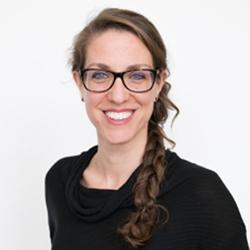
Amélie Blanchet Garneau, RN, PhD
Université de Montréal
Dr. Amélie Blanchet Garneau is a White settler of French ancestry living and working on the unceded and stolen lands of the Kanien’kehá:ka nation. She is a registered nurse since 2004 and an Associate professor at the Faculty of Nursing, Université de Montréal, since 2013. Dr. Garneau is interested in critical theoretical perspectives regarding Indigenous Peoples' health, and the relevance of anti-racist approaches in shifting clinical and organizational practices and policies toward fostering health equity. She holds a master’s degree in Community Health from Université Laval, a Ph.D. in Nursing Sciences from Université de Montréal and a post-doctorate from the Critical Research in Health and Healthcare Inequities Research Unit at the University of British Columbia. In partnership with Indigenous and non-indigenous scholars, leaders, and practitioners, her research program aims at decolonizing nursing practice and education toward Indigenous health equity. Her research is organized around two axes 1) Building future and registered nurses' capacity to become culturally safe practitioners who decolonize their practice, and 2) Developing wise practices at the organizational and policy levels to support equity-promoting and culturally safe health care. This program of research will help build and reinforce nurses’ and health professionals’ capacity to counteract anti-Indigenous racism and discrimination in healthcare settings and set up a context of practice that enables them to do so.
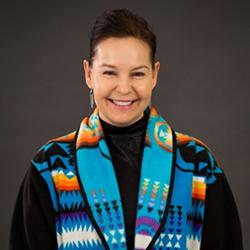
Holly Graham, RN, BA, BScN, MN, PhD, R.D. Psychologist
University of Saskatchewan
Dr. Holly Graham is a member of the Thunderchild First Nation, SK. She has worked as a Registered Nurse (RN) in northern communities and various other health care environments since 1985.
Currently, Dr. Graham is an Associate Professor in the College of Nursing at the University of Saskatchewan. She also maintains an active practice as a Registered Doctoral Psychologist, working primarily with individuals who have experienced trauma and symptoms of posttraumatic stress disorder (PTSD). Her research is strength-based with a focus on Indigenous health, mental health, and wellness.
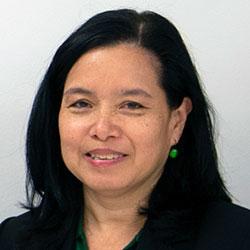
Margaret Hattori-Uchima, PhD, RN, FAAN
University of Guam
Margaret Hattori-Uchima is the Dean of the University of Guam School of Health. She was the 2019 Guam Nurse of the Year awarded by the Guam Nurses Association. In 2020, she was inducted into the American Academy of Nursing as the first Nursing Fellow from Guam. Dr. Hattori-Uchima has provided leadership in the study and alleviation of health disparities and had a significant impact in the arenas of education, practice, and health care. She secured significant funding for the HRSA funded Guam/Micronesia Geriatrics Workforce Enhancement Program which aims to fill gaps in care for the elderly and those with Alzheimer’s Disease and related dementias through workforce development, family/caregiver training, and enhancement of practice environments. Dr. Hattori-Uchima is the contact PI for the NIMHD U24: A cohort for Studying the Burden of Cardiometabolic Diseases in Guam and Pohnpei. She is one of the Guam co-MPIs in the NCI U54 Pacific Islands Partnership for Cancer Health Equity, and Guam lead investigator in the NIH BUILD EXITO (Building Infrastructure Leading to Diversity Enhancing Cross-Disciplinary Infrastructure and Training at Oregon). Her professional and academic collaborations target capacity building and research in health disparities, elder care, with emphasis on the needs of patients and families coping with Alzheimer's Disease, cancer disparities, and the biomedical training of underrepresented students in Micronesia. Dr. Hattori-Uchima has a BSN from the University of Hawaii, an MSN from University of Phoenix, and a PhD in Nursing from Villanova University.
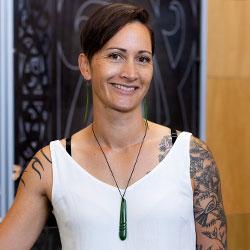
Deborah Heke, PhD
Aboriginal Affiliation: Ngā Puhi / Te Arawa
Deborah is a Research Fellow with Taupua Waiora – Centre for Māori health research, and early career academic with the School of Public Health and Interdisciplinary Studies at Auckland University of Technology. Deborah recently completed her PhD, which explored the identities of physically active Māori women and drew connections to the identities of feminine deities within te ao Māori – the Māori world.
Previous to the completion of her PhD, Deborah worked on research projects in a range of areas from Māori and Indigenous Data Sovereignty, Cultural Competence and Safety, Anti-racism, and Te Tiriti compliance. Deborah has a background in both the fitness industry and community mental health and brings her experience in these areas to her current work. She has a passion for Māori health equity, cultural identity, and the influences of te taiao (natural environment) on hau ora (wellbeing). She is interested in the many contemporary applications of mātauranga Māori (Māori knowledges), especially as it relates to health and physical activity. Deborah has fond connection with Texas where she spent 2 years of her life living in Carthage, East Texas, playing basketball for Panola College (class of 2005).
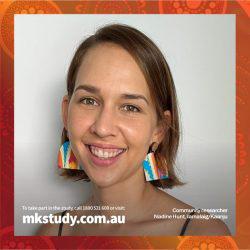
Nadine Hunt
Aboriginal Affiliation: Lamalaig/Kaanju
Australian National University, Australia
Nadine Hunt is Aboriginal (Lamalaig and Kaanju) from Australia. She is the Mayi Kuwayu Community Researcher. Nadine is a community Researcher based in Cairns (Northeast Queensland) and manages community-based recruitment for the study throughout Far North Queensland. Nadine is currently assisting one community to embed their data systems and processes for their community development agenda. Nadine volunteers as a running coach with the Cairns Deadly Runners and is in the final stages of completing a Bachelor of Business.
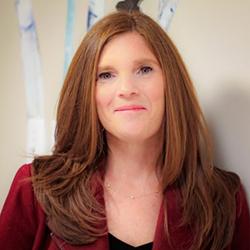
Margot Latimer, RN, PhD
Dalhousie University
Dr. Margot Latimer is a settler Canadian with Scottish ancestry. She lives and works on the unceded and ancestral territory of the Mi’kmaq. She is a Professor in the School of Nursing, Faculty of Health and is cross-appointed in the Department of Medicine at Dalhousie University. Margot was supported by Mi’kmaq communities to hold the Nova Scotia CIHR Research Chair in Indigenous Health Nursing. She has a scientific appointment at IWK Health and is scientific faculty in the IWK Centre for Pediatric Pain Research in Halifax, NS, Canada. Since 2008 she has been working closely with community to mobilize Indigenous knowledge and co-leads the CIHR funded research “Aboriginal Children’s Hurt and Healing” Initiative with Eskasoni Health Director, Sharon Rudderham. In addition, she is a co-lead, with John Sylliboy on the CIHR Chronic Pain Network Indigenous Health Research Advisory Committee.
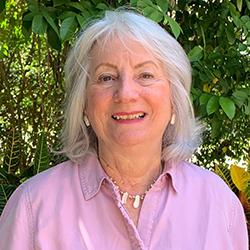
Patricia (Pat) Liehr, RN, PhD
Florida Atlantic University Christine E. Lynn College of Nursing
Patricia (Pat) Liehr, RN, PhD, is currently Professor Emerita at the Florida Atlantic University Christine E. Lynn College of Nursing where she served as Professor and the first Associate Dean for Research. Dr. Liehr was born and raised in Pittsburgh, Pennsylvania. Her research has focused on interventions that include yoga, mindfulness, and are story-centered. Her use of creative story-based approaches has been used to bridge misunderstandings at a global level. She has conducted National Institutes of Health funded studies that use story-based interventions to address health disparity issues among various populations including Native Americans. She believes and has discovered that stories are powerful entities for chronicling and creating health. Dr. Liehr is the co-author, with Dr. Mary Jane Smith, of Story Theory and the textbook, Middle Range Theory for Nursing.
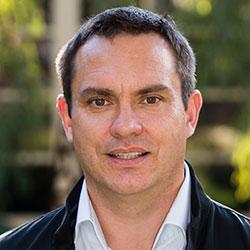
Ray Lovett, RN, PhD
Aboriginal Affiliation: Wongaibon/Ngiyampaa
Australian National University, Australia
Professor Ray Lovett is the Director of the Mayi Kuwayu Study at the National Centre for Epidemiology and Population Health at the Australian National University (ANU). Ray is an Aboriginal (Wongaibon/Ngiyampaa) social epidemiologist with extensive experience in health services research, public health policy development and health program evaluation. Dr Lovett background as a registered nurse was within Coronary Care settings and Aboriginal Medical Services. The emphasis of Professor Lovett’s research now has involved the integration of Aboriginal and Torres Strait Islander culture with improving health outcomes and health services. He has an additional focus on administrative and health services data to change policy and practice. Prof Lovett’s leadership and vision for Mayi Kuwayu: a large-scale, national longitudinal cohort study of Aboriginal and Torres Strait Islander people, as well as other projects on Aboriginal and Torres Strait Islander health, have already produced significant findings, including new insights into change in smoking practice amongst Aboriginal people, the impact of government policies on Aboriginal health, and evaluation of health programs related to Aboriginal and Torres Strait Islander people. As the Mayi Kuwayu Study progresses, new insights will be generated to inform program and policy development, which will ultimately lead to health improvements for Aboriginal and Torres Strait Islander people. Improving Aboriginal and Torres Strait Islander health has been the goal for Prof Ray Lovett’s work and research for over two decades. Prof Lovett is also an adjunct research fellow with the Australian Institute of Aboriginal and Torres Strait Islander Studies (AIATSIS).
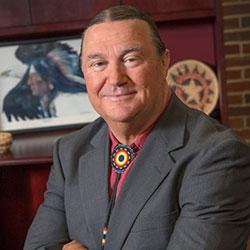
John Lowe, RN, PhD, FAAN
Tribal Affiliation: Cherokee/Creek/Lenape
The University of Texas at Austin, United States
Dr. Lowe is the Joseph Blades Centennial Memorial Professor at the University of Texas at Austin School of Nursing. He is a Cherokee Native American tribal member and also has Creek and Lenape Native American tribal heritage. Dr. Lowe currently serves as a member of the Advisory Council to the National Institutes of Nursing Research (NINR). He co-authored with Dr. Roxanne Struthers (Ojibwe) the Conceptual Framework for Nursing in Native American Culture. Dr. Lowe was the first Native American man to be inducted as a fellow in the American Academy of Nursing and currently serves as a member of the selection committee. He is an alumnus of the Minority Fellowship Program (MFP) at the American Nurses Association and has served as the Chair of the National Advisory Council to the MFP. He developed and studies interventions for the prevention and reduction of substance use and other risk behaviors among Native American and Indigenous youth and young adults globally. These studies and other health programs are guided by models that Dr. Lowe developed which include the Cherokee Self-Reliance, Native Self-Reliance and Native-Reliance theoretical framework and models. Dr. Lowe also developed the first manualized Talking Circle intervention to reduce substance use and other risk behaviors among Native American/Indigenous youth in the United States and globally in countries such as Canada and Australia. His research projects have been funded by the National Institutes of Health, Substance Abuse and Mental Health Service Administration, and other organizations and foundations such as the Rita & Alex Hillman Foundation, and the Robert Wood Johnson Foundation. The Talking Circle intervention has been recognized by the U.S. Department of Justice’s Office of Justice Programs as a “Promising Evidence-Based Program” for the well-being of youth, recognized as the first manualized Talking Circle intervention, featured as one of the American Academy of Nursing’s “Edge Runners,” and most recently featured in the National Academy of Medicine report of The Future of Nursing 2020-2030: Charting a Path to Achieve Health Equity. He developed the first Center for Indigenous Nursing Research and hosted the first International Indigenous Nursing Research Summit in 2017. Dr. Lowe’s work also has been acknowledged through numerous awards such as the American Nurses Association Luther Christman Award, Florida Nurses Association Cultural Diversity Award, Great 100 Centennial Research Award, Nursing Educator of the Year Award, Nurse of the Year Award, Lifetime Achievement In Education & Research Award, the Researcher of the Year at the Professor Rank Award, and most recently induction into the Sigma Theta Tau International Honor Society of Nursing International Nurse Researcher Hall of Fame. Dr. Lowe has presented nationally and internationally and has published several articles and books.
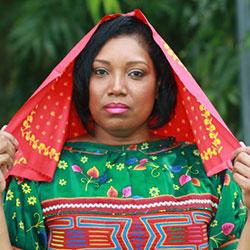
Eugenia Millender, Ph.D., PMH-APRN, CDE, FAAN
Indigenous Heritaage: Guna
Florida State University, United States
Dr. Millender is an indigenous (Guna) Afro-Latina nurse scientist who has dedicated her career to increasing access to preventative mental health services and community-engagement research. Dr. Millender is the Co-Founder and Co-Director of the Center of Population Sciences for Health Equity and a tenured Associate Professor at Florida State University College of Nursing. Her program of research investigates ways to reduce mental health disparities by exploring how socio-cultural stressors and trauma influence transgenerational psychological and co-occurring physical illness through gene-environment interaction among vulnerable, underserved, and marginalized populations nationally and internationally. She creates data-driven assessments and clinical interventions that connect research and practice at the community, national and international levels. In addition, in 2014, she founded the Florida Atlantic University Christine E. College of Nursing Nurse-led community health center in West Palm Beach, Florida, dedicated to increasing access to quality and culturally sensitive integrated care for underserved populations.
Dr. Millender currently serves on several national boards and leadership positions, such as the American Psychiatric Nurses Association (APNA) board as Member-At-Large. She is also a Global Alliance for Behavioral Health and Social Justice Global Mental Health Task Force member to promote social justice and human rights and reduce behavioral health disparities. Furthermore, she has a courtesy research associate appointment at the Instituto Conmemorativo Gorgas de Estudios de la Salud, Republic of Panamá where she collaborates with scientists to address mental health disparities among indigenous populations in Panama.
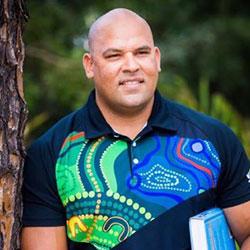
Francis Nona, RN, BN, MPH & Doctoral Student
Indigenous Heritage: Torres Strait Islander
University of Queensland, Australia
Mr. Francis Nona (BN, MPH) is a proud Torres Strait Islander man (speaking his own native tongue). He is an Indigenous Pathways Lecturer in the School of Public Health at the University of Queensland. In this role, he provides education and is a researcher within the School of Public Health, across a range of topic areas (including nursing, nutrition, climate change, pandemics, health communication and community-led research). He is a Registered Nurse and an emerging leader for Aboriginal and Torres Strait Islander health equity. As a Torres Strait Islander, he has personal lived experience of living and working with both urban and remote Aboriginal and Torres Strait Islander communities in Australia. Mr Nona has worked in clinical settings as a Registered Nurse including juvenile detention centres, aged care, rehabilitation units, brain injury rehabilitation, and Aboriginal Medical Services. He has also managed and led Aboriginal Medical Services in his role as acting CEO and Clinic Manager. He has his nursing degree, Master of Public Health and has started work on a PhD in Public Health.
He is a member of several Boards and Committees across health services (private and public) to provide direction in the provision of culturally appropriate healthcare. He also works closely with Brisbane Schools (public and private) including primary and secondary students, as part of efforts to drive the Reconciliation Action Plans of schools and direct support for Aboriginal and Torres Strait Islander students. Francis is passionate about the importance of reconciliation to address inequity for Aboriginal and Torres Strait Islander peoples.
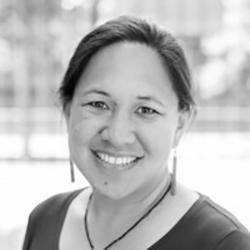
Donna-Marie Palakiko, PhD, APRN
University of Hawai‘i at Mānoa
Donna-Marie Palakiko, RN, PhD is a Kanaka Maoli mother, nurse, researcher, and health strategist. Her commitment to improving the health of the lāhui is deeply rooted in understanding her kuleana and kulana (responsibility and role). This commitment stems from her life experience as the family caregiver and the loss of countless family members from preventable deaths.
Dr. Palakiko is an Assistant Professor at the Nancy Atmospera-Walch School of Nursing at the University of Hawai‘i at Mānoa. Prior to joining the School of Nursing, Dr. Palakiko worked in partnership with Native Hawaiian communities to address concerns around access to health care through developing programs, services, and increasing the number of Native Hawaiian health professionals in the workforce. As a researcher, she was a founding partner for the PILI ‘Ohana Partnership, a community-based participatory research hui (group) which developed a lifestyle intervention for Hawaiian and Pacific Islander peoples in Hawai‘i.
Dr. Palakiko is a 2022 Postdoctoral Fulbright Fellow at the University of Newcastle. Her current work addresses asthma inequities in Aboriginal and Torres Strait Islander peoples. This is an extension of her work in Hawai‘i which focuses on Native Hawaiian asthma inequities.
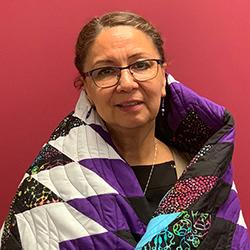
Wanda Phillips-Beck, MSc, PhD
Wanda Phillips-Beck, PhD is Anishinaabekwe (Ojibway) from Hollow Water First Nation in Manitoba. She is married and has two grown children. She prides herself in being a lifelong learner, having begun her PhD studies in her early 50’s. She works full time as a research scholar for the First Nation Health and Social Secretariat of Manitoba. In 2020, Dr. Phillips-Beck was awarded the CIHR funded Indigenous Research Chair in Nursing - the first time a chair has been awarded to a community-based research organization. She obtained a MSc in 2010 and PhD in 2021 both in Community Health Sciences, with a focus on health policy and on the use of decolonizing approaches in population health research. Her approach to research has been, and will continue to, begin with listening to and following advice and guidance from Knowledge Keepers. She is grounded in who she is as an Anishinaabekwe, and her work is informed by her many years working as a nurse leader and researcher, and the many years of working with and among Cree, Ojibway, Dene, Dakota, Metis and Anishininew peoples of Manitoba.
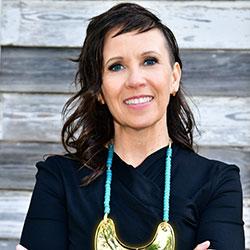
Nichole S. Prescott, PhD
Indigenous Heritage: Miami Nation of Oklahoma (Myaamia)
University of Texas System
Dr. Nichole S. Prescott is Assistant Vice Chancellor for Academic Affairs at the University of Texas System, responsible for leading and supporting student success initiatives system-wide. Dr. Prescott is equity-minded in her work with strong attentiveness to historic inequities and systemic racism, including opportunity and achievement gaps for minoritized student populations. She has been interviewed about her work by national media outlets, such as Indian Country Today and Univision, in addition to local media outlets. Dr. Prescott was also spotlighted in a feature story in the Austin American Statesman, ‘We should honor all parts of who we are’: Nichole Prescott on reviving Indigenous culture (October 2021).
She is a proud citizen of the Miami Nation of Oklahoma (Myaamia) and actively participates in the culture and language revitalization efforts of her people, while maintaining a strong engagement with the broader Native American community. She lives in the Texas Hill Country with her wife, two kids, two dogs, and three cats.
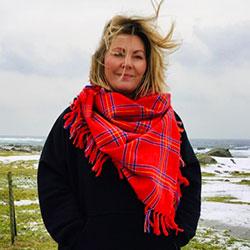
Nina Sivertsen, PhD, RN
Indigenous Heritage: Sámi
Flinders University, Australia
Nina Sivertsen is an Indigenous Sámi woman living and working on Kaurna Lands in Australia. She holds a position as Senior Lecturer (Nursing), Flinders University, and Associate Professor, Arctic University of Norway. Her academic work encompasses curriculum design and implementation, with cultural responsiveness in the centre to positively engage students in learning about First Nations health. In her research, she focuses on community and health systems research in partnership with First Peoples and contributes to restorative policy and practice, especially around women’s health in a socio-political context of assimilation and colonisation. She works in inter-Indigenous settings together with First Nations health professionals from around the world to improve healthcare and health outcomes for all First Nations people. Nina’s work in the nexus of Indigenous women’s identities, culture, health, and education has led to international recognition as evidenced by her partnerships in Norway, Canada and Australia. She is the recipient of numerous awards; amongst them the 2021 Women in Innovation Award, the 2020 Vice-Chancellor’s Award for Innovation in Teaching, as well as being a finalist of the 2021 AFR National Teaching Excellence Awards.
Dr. Sivertsen is an active member of many community organisations and academic committees providing space for Indigenous voices within strategic planning, governance, and curriculum. She works with research higher degree students to create new knowledge and build capacity enabling students to fulfil their potential as independent academics and researchers of the future. Nina is currently the Caring Futures Institute co-lead of research theme Better Communities.
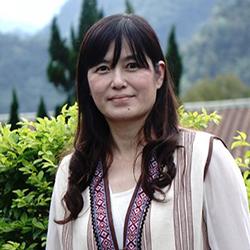
Yi-Maun Subeq, RN, CRNP, PhD
Nation: Indigenous Heritage: Turuku, Taiwan
National Taichung University of Science and Technology, Taiwan
Born and raised in a Taiwanese indigenous tribe, Yi-Maun Subeq, CRNP, PhD, is an associate professor and researcher in the field of Nursing Science, focusing on transcultural nursing, nursing education and informatics, indigenous health, health disparities, and critical and emergency health issues. In the past few years, Subeq participates in the promotion of the Basic Law of the Indigenous Peoples, serves as a member of the Indigenous Peoples Health Committee of the Ministry of Health and Welfare, and presides over the Human Body Research Law Consultation Project Management Center for Indigenous Peoples. In addition to serving as an associate professor at National Taichung University of Science and Technology in Taiwan, she has been dedicated to participating in projects for developing national health policies of indigenous, health care and has conducted related research and published papers in SCI journals, international conferences, and professional magazines world-wide.
Recently, she has paid attention to the impact of the epidemic on the Taiwanese tribal regions. She uses public television media and publicity to draw the government and the public's attention to the situation of comorbidity caused by the unequal health of aborigines. Elected as the chairperson of Taiwan Cross-cultural Health Care Association, Subeq leads the aboriginal medical personnel in Taiwan advocating the draft and legislative process of the Health Law for Indigenous Peoples in Taiwan.
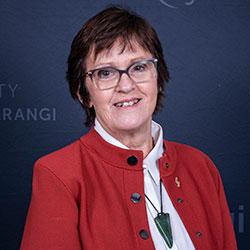
Denise Wilson, RN, PhD, FCA(NZ), FRSNZ, FAAN
Tribal Affiliations: Ngāti Tahinga (Tainui); Ngāti Porou ki Harataunga; Whakatōhea, Ngāti OneOne; Tūwharetoa
Auckland University of Technology, Auckland, Aotearoa New Zealand
Professor Denise Wilson (Ngāti Tahinga, Tainui) is a New Zealand registered nurse with intensive and coronary care, acute medicine, and community nursing experience. She is a Professor in Māori Health, an Associate Dean Māori Advancement in the Faculty of Health & Environmental Sciences, and a Co-Director of Auckland University of Technology’s Taupua Waiora Māori Research Centre. Denise’s research focuses on violence within whānau (extended family networks), equitable health service engagement for Māori, cultural responsiveness, and workforce development. She is a Fellow of the College of Nurses Aotearoa (New Zealand), the American Academy of Nurses, and the Royal Society Te Āparangi for her contributions to research and policy related to Indigenous and Māori health, and whānau violence.
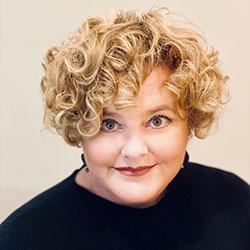
Shannon N. Zenk, PhD, MPH, RN, FAAN
Director, National Institute of Nursing Research
Shannon N. Zenk, PhD, MPH, RN, FAAN is Director of the National Institute of Nursing Research (NINR). She joined NINR in September 2020, following a 14-year career as a faculty member at the University of Illinois Chicago (UIC) College of Nursing and Institute for Health Research and Policy. Her background is in nursing and public health. Dr. Zenk’s own research focuses on community environments as a social determinant of health and health inequities. She and her team conducted pioneering research on food deserts in the United States. Dr. Zenk is an elected member of the National Academy of Medicine and was inducted into the International Nurse Researcher Hall of Fame in 2019.

